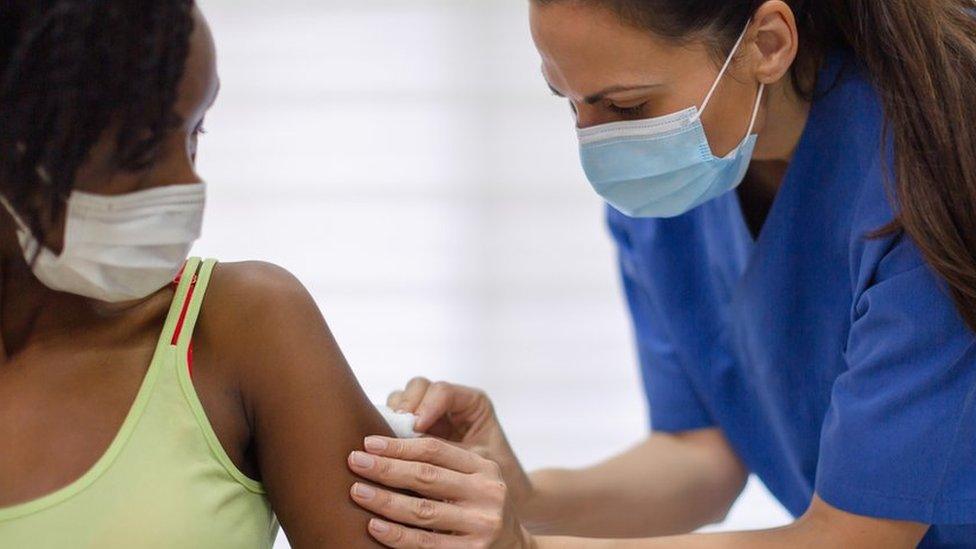Covid: Caution needed over double-jab exemption - expert
- Published
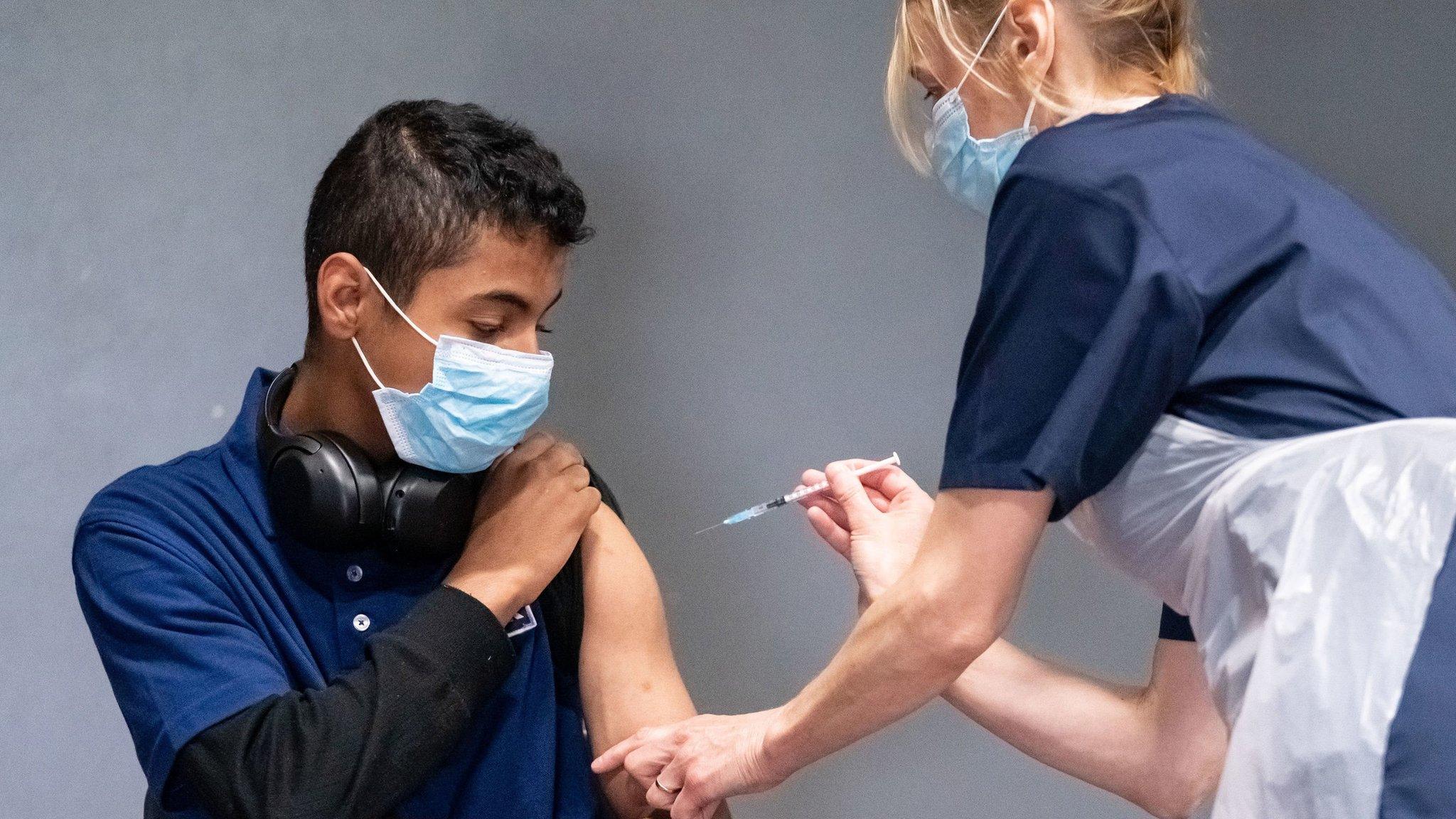
Allowing fully vaccinated people to skip self-isolation risks a "loss of compliance", a psychologist has warned.
Prof Robert West said the move - being considered by ministers - could breed "resentment" and encourage those without both jabs to ignore the rules.
A Downing Street source said no decisions had been taken over the change, which reports said would come after most restrictions end in England.
Meanwhile, a further 24,885 Covid cases were reported in the UK on Saturday.
Another 18 deaths within 28 days of a positive test were also recorded. However, another 122,377 first vaccine doses and 160,763 second jabs were also delivered.
People identified as close contacts of a confirmed Covid case are currently required to self-isolate for up to 10 full days when contacted by NHS Test and Trace.
But the government is considering allowing those who are fully protected to continue life as normal without isolating or conducting daily tests after the final stage of England's roadmap out of lockdown.
The proposal was first reported by the Times, external.
Prof West, who has helped advise the government on behavioural science during the pandemic, told Times Radio: "The most serious problem is that if you have a situation where not everyone has been even offered the vaccine then you've already got clearly a huge unfairness.
"When you get unfairness in situations like this, you get resentment and when you get resentment you can get loss of compliance."
But his assessment was challenged by other medical experts who said it would be "perfectly OK" to allow those who are fully inoculated greater freedom.
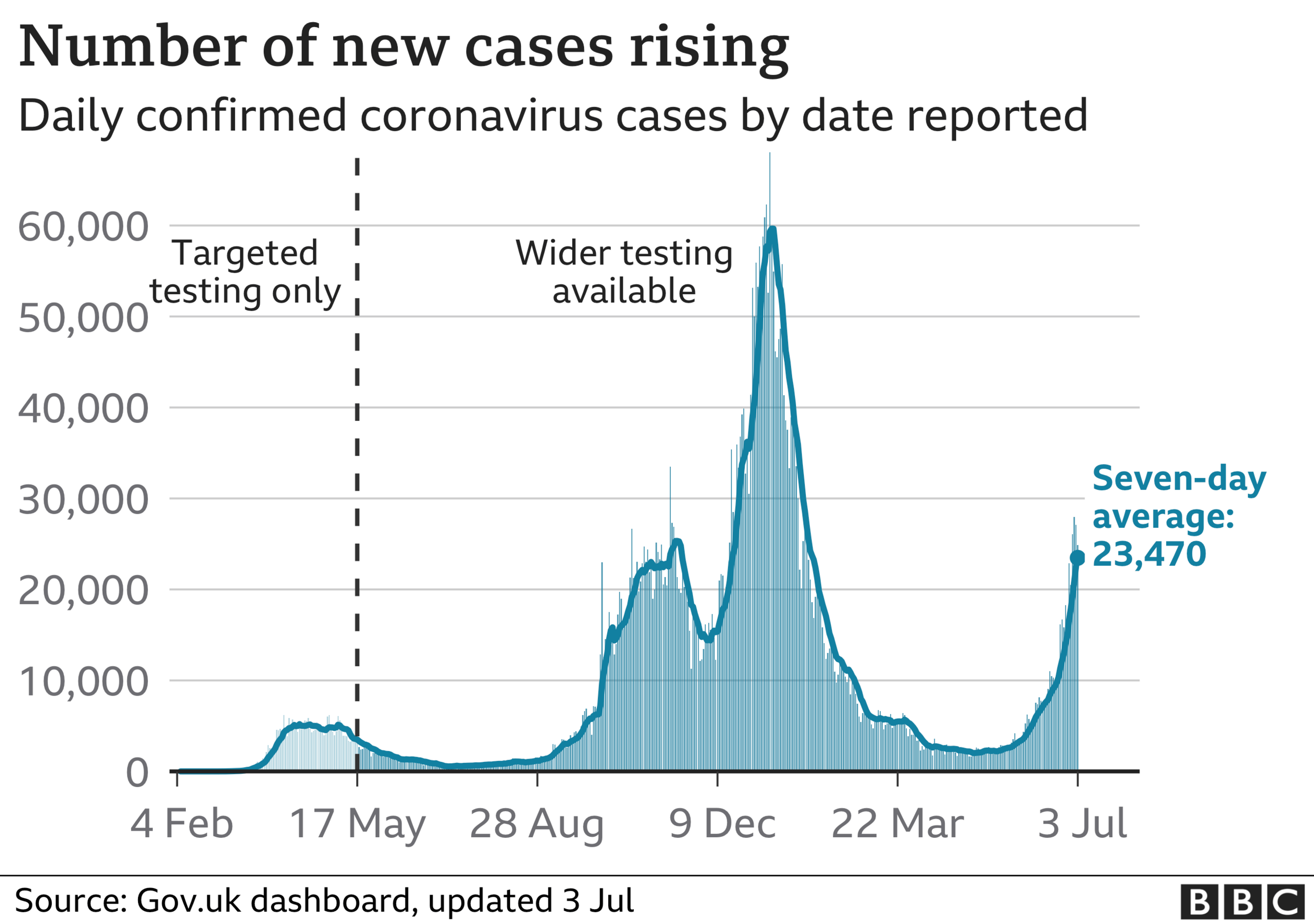
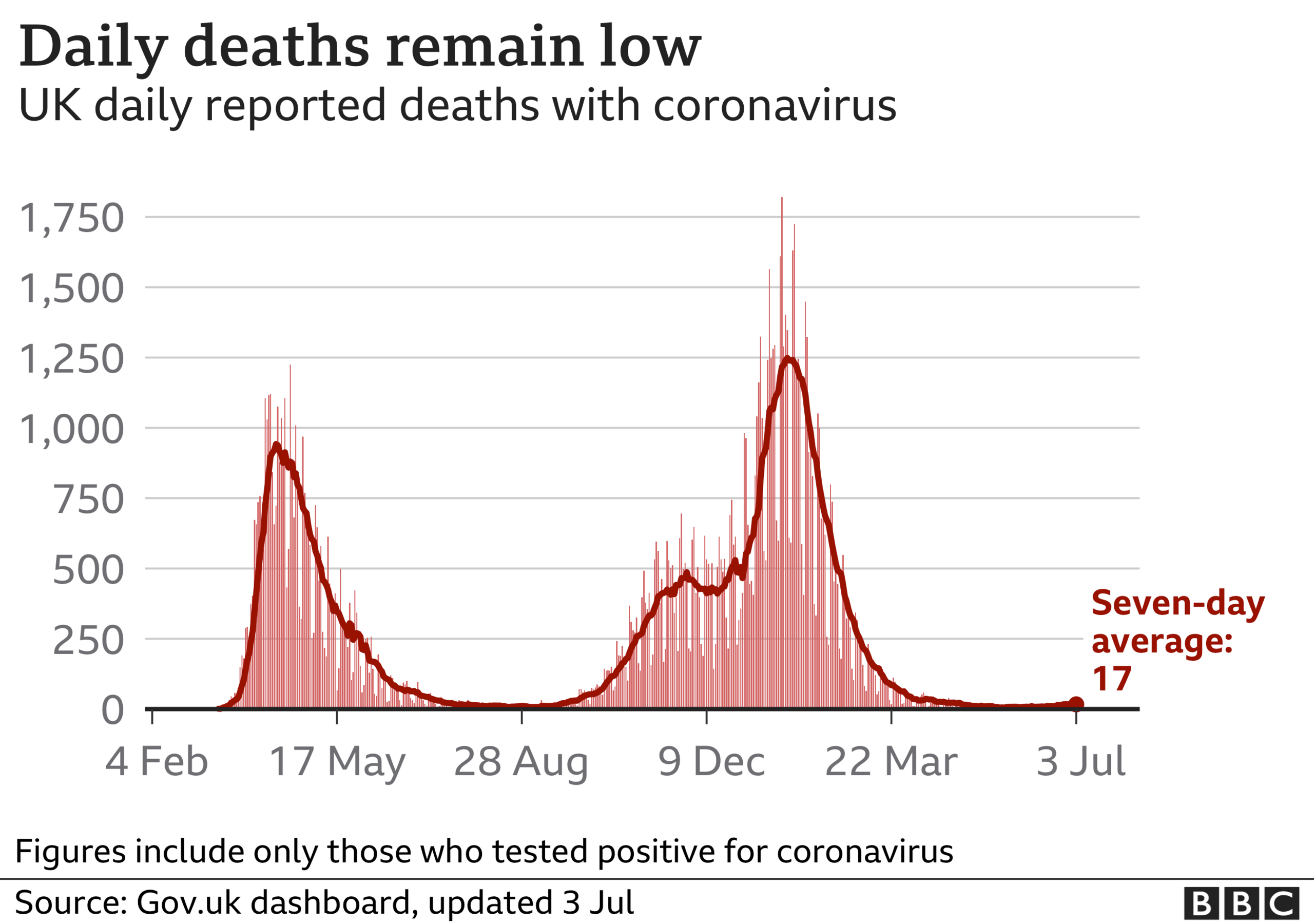

Dr Bharat Pankhania, a senior clinical lecturer in communicable diseases at the University of Exeter, told BBC Radio 4's Today programme that vaccines were breaking the link between cases, hospital admissions and deaths.
He said that meant "we can start thinking about other uncoupling measures, such as no need to quarantine after being fully immunised".
Epidemiologist Professor Christophe Fraser, who advised the Department of Health on its test-and-trace programme, said a "midway" proposal could be that those who have received both jabs were tested every day instead of undertaking a quarantine period.
The Oxford University academic said he agreed the self-isolation policy "needs to be reviewed in light of the data on the vaccine effectiveness".
More than 45 million have received at least a first dose, according to latest figures, with over 33 million having received a second dose.
Jab gap advice
As the vaccination roll out continues, NHS England confirmed national guidance has been clarified amid anecdotal reports that some people have been offered a second dose as early as four weeks after their first jab.
Users on social media platform Reddit claimed a centre in London allowed them to receive their second jab earlier than the minimum eight-week gap because they had plans to travel or were due to attend weddings later this month.
In an update to its green book advice, external for public health professionals on Thursday, Public Health England said a gap of at least eight weeks should be used - with the main exception being for those about to commence immunosuppressive treatment.
An NHS spokesperson said: "Every site should vaccinate in line with clinical guidance, which says second doses should take place between eight and 12 weeks after the first."
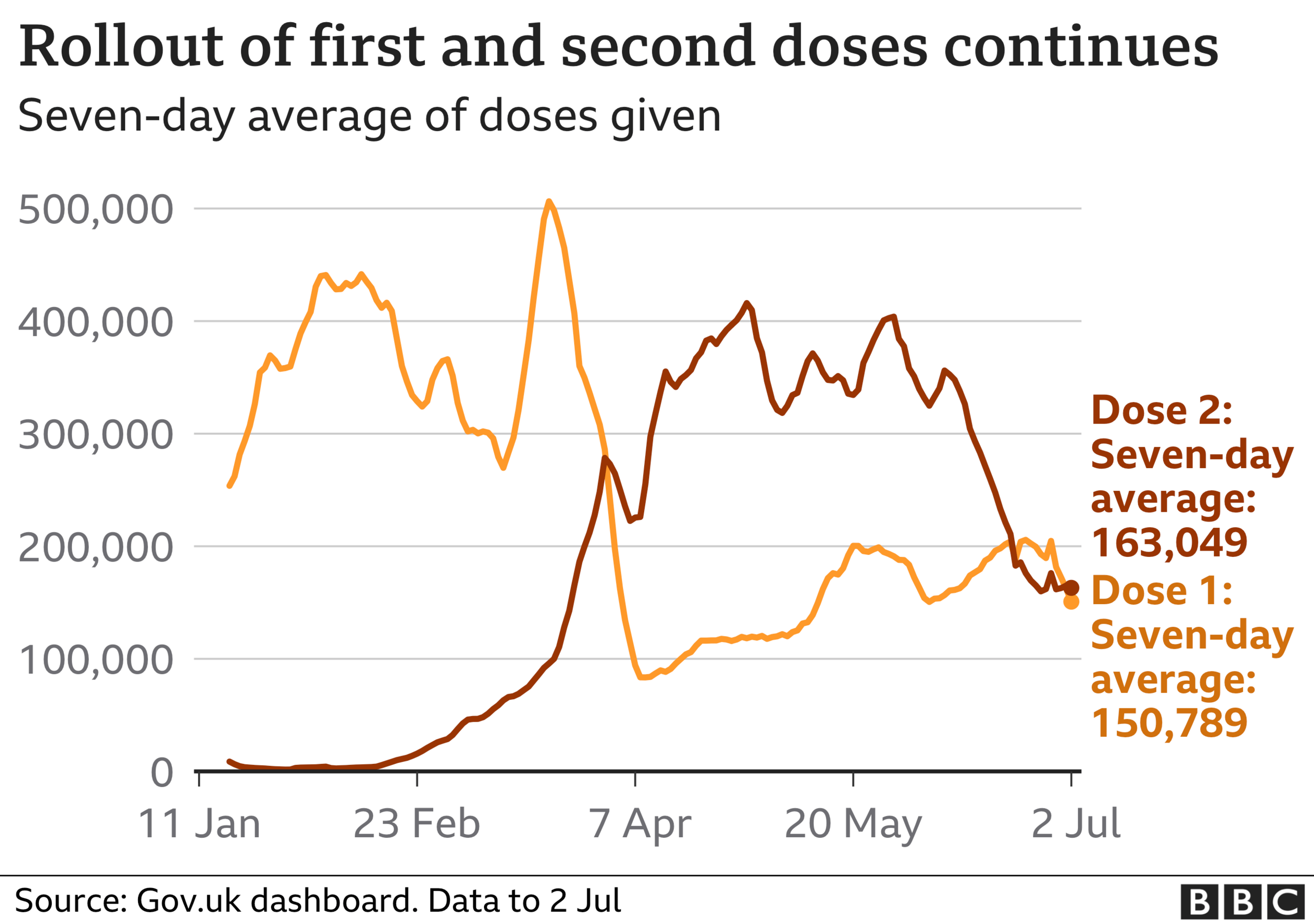
Earlier, doctors called for some measures to remain in place to control the spread of the virus after the fourth step in England's roadmap.
The British Medical Association said the use of face masks should continue alongside new ventilation standards to protect the NHS, health and education.
Prime Minister Boris Johnson said on Thursday that he hoped England would be able to return to as close to the pre-pandemic status quo as possible on 19 July - described as the final stage of lockdown lifting in England.

IS IT COMING HOME?: England's victory over Germany, fan reactions and looking ahead to tonight's match
PIECES OF BRITNEY: What do we know about the pop icon and her story so far?

- Published2 July 2021
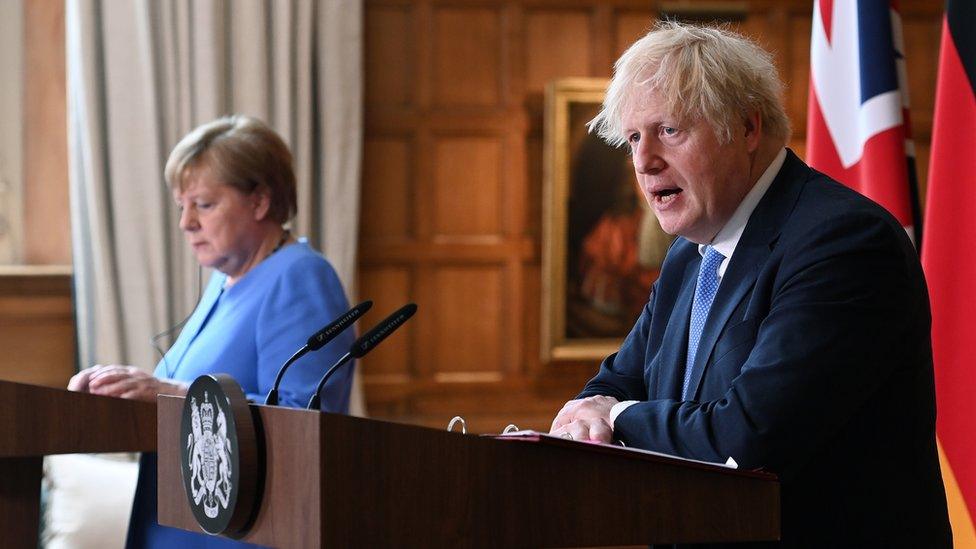
- Published2 July 2021
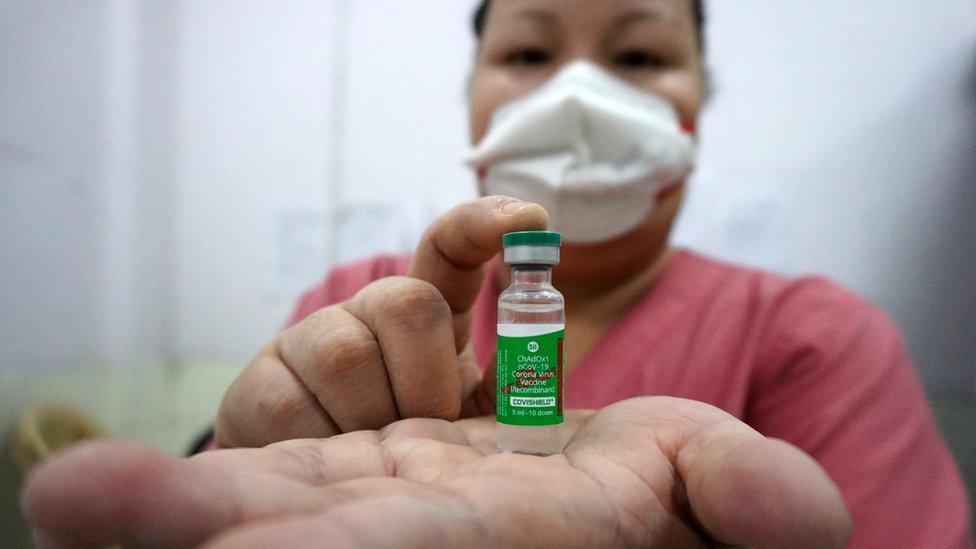
- Published11 February 2022

- Published2 July 2021
